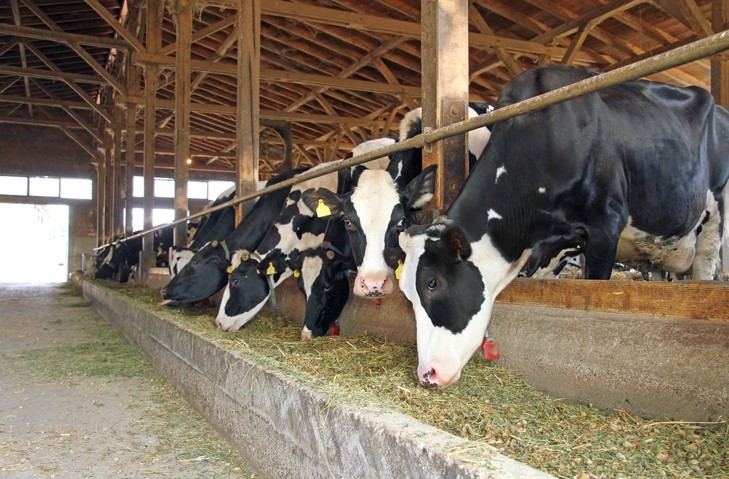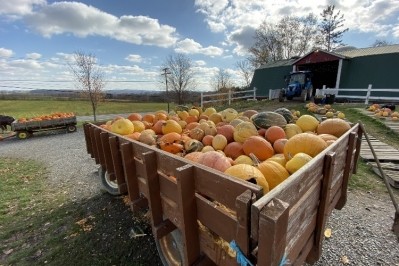UPenn studies climate change through dairy cows

UPenn’s School of Veterinary Medicine (Penn Vet) has been working on a dairy-focused project called ‘The Amazing Cow.’ It documents the types, amounts and variations of dairy cow feed, characterizing important nutritional attributes.
Led by Dr. Zhengxia Dou, Professor of Agricultural Systems, the project is meant to give dairy producers insights on how food that falls under indigestible, unpalatable, or unsellable biomass (IUUB) can be better implemented on dairy farms.
According to PennVet, dairy farmers, along with beef, poultry and pork farmers, have been evolving techniques to produce milk, meat and eggs as efficiently and sustainably as possible, minimizing agriculture’s climate-contributing footprint.
“Animals are natural bio-processors. By maximizing the use of IUUB, the livestock sector of agriculture actually contributes to this societal issue in a very positive way,” Dr. Dou said.
A chunk of these processing byproducts are generated from the production of plant-based dairy alternatives, as well as everyday products like soybean and canola oils, orange juice and ethanol. Feeding these IUUBs to cows keeps them from going to landfills.
It’s estimated that every year, about 80 million tons of byproduct in the US that is generated from food and drink production is consumed by animals.
“Besides empowering farmers to make sustainable, but sensible, animal husbandry decisions, Dou’s team sees their circular, agro-food system model as a key to providing consumers with a healthy diet while reducing the issues some associate solely with livestock production,” Penn Vet said.
Dou told DairyReporter that her team has studied several dairy farms in Pennsylvania employing creative feed solutions. One farm receives daily deliveries of apple waste from a nearby processing facility that supplies apple slices for school lunches.
Another gets three truckloads of produce discards and expired bread products delivered every week from area distribution centers. Producers have even started using waste from brewers, which is usually sour mash that results from beer production.
In November, several dairy farmers spoke publicly about using their cows to dispose of excess and rotted pumpkins leftover from Halloween.
“Working with area farmers as well as a large fruit and vegetable wholesale centers, we have recognized some practical issues that need to be addressed in order to grow the adoption of this model further - primarily the logistics of transport and costs, and the safe use of the materials on the farm, given their perishable natures,” Dr. Dou said.
These issues are the reason Penn Vet is looking for more sustainable solutions. Dou’s team is developing technology to unlock the resources in highly perishable IUUB materials, an initiative that’s consisting of creating a database, conducting research trials and assessing relevant nutritional, environmental and climate impacts.
“Dou’s circular agro-food system model doesn’t just focus on utilizing what goes into an animal, but also what comes out. Improving the practices of recycling manure back to cropland remains a key consideration,” Penn Vet said.
“The management impact is twofold: the value of manure nutrients for growing crops, and mitigation of water quality issues from spreading manure.”
Dou said that the US should support these practices, and showing the research to the public and to policymakers is critical to furthering the industry and combating challenges from climate change.












